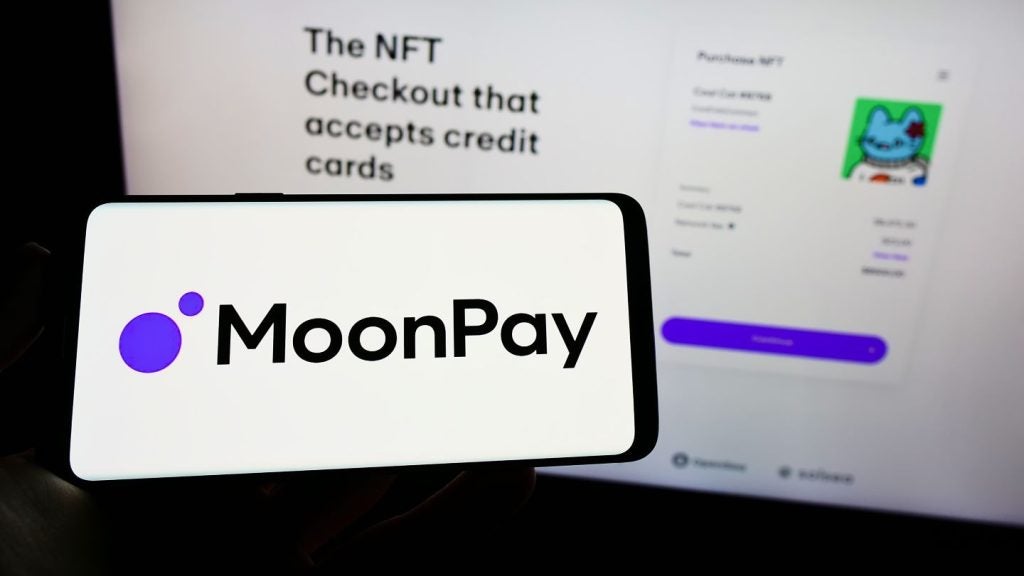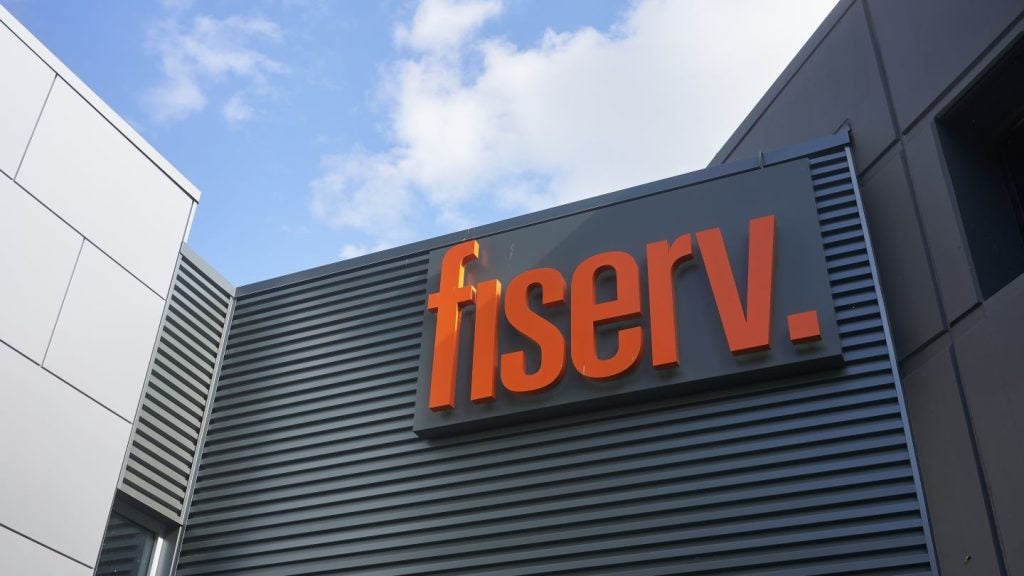names in merchant acquiring and payment processing, although
recently it has become famous (or infamous) for a high-profile
security breach that made headlines around the world. Despite this,
Ron
Kalifa, managing director, is confident the company
will retain its leading position in the payment space.
.jpg) RBS WorldPay is the payment processing and merchant
RBS WorldPay is the payment processing and merchant
acquiring division of the Royal Bank of Scotland (RBS). Established
in 1989, it became the market leader on POS acquiring in the UK in
just 10 years. WorldPay pioneered the development of online
shopping portals in Europe and multi-currency payment processing
before becoming part of the Royal Bank of Scotland in 2002.
Over the last few years, RBS WorldPay has
developed its international merchant operations and now offers
services in over 50 countries. More recently, it realigned its
seven separate brands which were operating in differing electronic
transaction segments (Streamline, WorldPay, Bibit, PaymentTrust,
RiskGuardian, Streamline International and RBS Lynk) together under
the RBS WorldPay brand.
Ron Kalifa (RK), managing director of RBS
WorldPay, recently spoke to CI about the rationale for the
rebranding, the company’s view of the merchant acquiring and
processing landscape, and how it plans to strengthen its position
going forward.
Cards
International (CI): Why has the
organisation taken the decision to bring together its different
brands under one umbrella name?
RK: RBS WorldPay is a set of
businesses that has grown organically and through acquisitions over
the last seven or eight years. We have been in the POS acquiring
business for over 20 years and as the e-commerce world has started
to move, we’ve built up a fantastic portfolio of businesses with
market-leading capabilities.
How well do you really know your competitors?
Access the most comprehensive Company Profiles on the market, powered by GlobalData. Save hours of research. Gain competitive edge.

Thank you!
Your download email will arrive shortly
Not ready to buy yet? Download a free sample
We are confident about the unique quality of our Company Profiles. However, we want you to make the most beneficial decision for your business, so we offer a free sample that you can download by submitting the below form
By GlobalDataWe have set ourselves a simple objective, to
touch as many transactions as possible, irrespective of channel –
i.e. whether through the POS channel, mail order/ telephone order
or e-commerce. Our objective is also to touch as many transactions
as we can on an international scale, not just in the UK.
It no longer makes sense for us to have our
different brands, such as Streamline and WorldPay, work in
isolation within one business.
Together, they can combine many capabilities
to offer a one-stop shop of sophisticated solutions to merchants
regardless of size or industry. We’ve consolidated our existing
payment solutions products and services under one brand to provide
our customers with access to better technologies, solutions and
ultimately flexibility. This will enable their payment processing
to grow and evolve as their business does.
Under the banner of the new brand of RBS
WorldPay, I’m keen to launch ourselves as the world’s first real
global acquirer. There is no such thing at the moment as global
acquiring – it’s an opportunity that only exists for a relatively
small number of players.
I’d like to think that we’re one of them, and
more importantly I think we’ll be the first to get there. It takes
quite a lot to build and it requires the involvement of the card
schemes and the associations. It’s easier said than done, and it’s
a constant challenge because of the way that the four-party model
works.
But overall, bringing together our brands,
products and our propositions has created a stronger glue from a
value-chain point of view.
CI:
RBS WorldPay was involved very early on in the e-commerce
segment. How has the organisation, and the industry itself, evolved
since then?
RK: Our WorldPay business built the
world’s first online shopping portal in 1994, and if you think
about e-commerce at that time, online shopping was really something
of a fad. It was ahead of its time.
We tried it but found people weren’t
coming to the portal because there was a certain level of anxiety.
In some ways that anxiety is still there but the benefits of
shopping online have overcome them. The portal was ahead of its
time but was the right thing to do.
We’ve historically been pioneers in the POS
space too. We created, on the back of the strong Streamline brand,
the Streamline International business.
British Airways approached us and said they
wanted to able to process transactions globally. At the time, there
was no way to do that as the scheme rules didn’t allow it; so,
working with the card schemes we created the rule set and with it
opened up the market. The card schemes could see where the world
needed to get to and had the vision to help us make it possible for
our customers, on the back of the request of one specific client,
British Airways.
The additional benefit to us was that we
established a capability ahead of the market, and were able to win
more airline business on the strength not only of the capability,
but the willingness to work with the industry to develop solutions
for our customers.
The world of acquiring is changing quite
dramatically. We’re seeing a number of players who are beginning to
create partnerships with technology providers and platforms.
That’s because the revenue streams in
acquiring are relatively strong, and apart from the fluctuations in
transaction volumes they’re not that volatile.
The things that make the acquiring business
work effectively are scale, volume, access to distribution, access
to technology, access to scheme licences and a clear customer
focus.
The acquiring business is split into clusters.
There are three broad groupings. First, there is the POS
proposition – and I think the world is ready for some changes
there.
Payment terminals are currently used as pretty
basic tools. We have upgraded to chip and PIN, built in more
security and embraced new communications technologies, but the core
functionality has not really developed.
I think the reason for that is that people are
worried about the back-end platform technology rather than thinking
about the role the terminal itself could play at point of sale.
A terminal is now a more sophisticated device
that can be updated more rapidly. It’s more feasible to enable the
terminal to offer a broader range of services. We are trying to
move our POS proposition in that direction.
The second cluster or channel is e-commerce.
It’s growing not just rapidly but also morphing very quickly.
We’ve therefore tried to do things differently
in e-commerce. We’re conscious of the significance of emerging
payment options so we’ve created strategic partnerships with some
of them. PayPal and Google for instance are fantastic relationships
to have.
They are very demanding clients but they are
helping to move the industry forward. Similarly they can benefit
from the power of someone like RBS WorldPay with the
infrastructure, acquiring experience and associations to help
them.
These alliances are actually giving us new
models for aggregation, which didn’t exist in the past. I believe
that the industry will evolve by creating new business models in
this space.
The third cluster is fraud and risk
management. Sadly, online fraud is still on the increase and is set
to rise without a concerted effort by the risk and payments
community to stop the fraudsters in their tracks.
Our products are already highly secure but we
cannot afford to be complacent. Being one of the leading volume
acquirers of card-not-present transactions in Europe means we have
a huge responsibility to ensure that our merchants and cardholders
trade in an environment that is safe and free of fraud.
We are constantly working with our customers,
suppliers and the schemes to enhance and improve our services to
ensure we provide market-leading risk management and fraud
screening solutions. These are tailored to suit all types of
businesses and industry sectors.
Those are the three clusters in terms of how I
think about the business. As a business, we’ve been very proactive
to ensure that we got there ahead of the curve, particularly in
terms of e-commerce, fraud and so on.
Not everything is perfect, but I’m delighted
with the progress that we’ve made.
CI:
How has the merchant acquiring market changed over the past
few years in terms of how customers are acquired or in the cost of
acquisition?
RK: In the POS world, five years ago
speed of response and reliability were differentiators, now they
are simply hygiene factors.
Reducing my customer acquisition costs through
having a direct sales force has made a big difference and of course
as a bank we also have the advantage of using our branch network as
an effective and low cost distribution channel.
This has enabled us to broaden the number of
smaller retailers who accept cards considerably.
In terms of what’s next, we need to look to
the US where there are a few models which are very interesting such
as the independent sales organisations (ISOs).
That’s a fairly well established practice in
the US, unlike in Europe. In the UK, we are at the forefront of
creating new channel models. For example, we have built
relationships with a small number of ISOs, including probably the
biggest UK ISO, Card Save, for our POS business.
We’ve also created distribution channels with
large third-party organisations – we have a very strong
relationship with the Federation of Small Businesses for
example.
The world is becoming more focused on
specialisms and partnerships. If there’s an organisation which can
bring a particular capability or customer group to us, we will
partner with them to create new distribution models.
CI:
What profitability pressures are impacting the merchant
acquiring market at the moment?
RK: It depends on the type of
acquirer you are. I take the view that we are broadly
interchange-agnostic.
If you think about the cards model
from an acquiring point of view, it tends to be a pass-through
model, so whatever interchange is, whether it goes up or down, it
will be passed through to the merchant because it’s my wholesale
cost. So it should have no direct impact in terms of merchant
revenue.
There are of course exceptions to every rule,
but that’s a general process. What it does do is it starts to
actually shift the emphasis in terms of the four-party model from
issuers to acquirers.
Acquiring has become a bit more in-vogue than
it was. It’s no longer at the sweaty end of card payments.
Interchange will have a greater impact on the
issuing business than it will on the acquiring business. That’s
going to prove quite challenging because issuing has typically been
a higher income business than acquiring.
Those costs are still there and are inherent
in the model. There’s a cost for processing, there’s a cost for
making credit available, there’s a cost for fraud, and they’re not
going to go away.
SEPA is creating a level playing field, it
will create more clarity and less confusion in terms of the way
protocols will be set up.
When you create a payment, whether it’s on one
side or the other, you won’t need to worry about the fact that the
infrastructure in France is different to the infrastructure in
Germany or elsewhere.
That level playing field will be a good thing
and it will help the merchant and the consumer in the longer term.
I’m a believer in making sure that it’s not just about putting the
rules through the issuing side, it also has to come through the
acquiring side.
As an analogy: the train may be the issuing
side, but the tracks are essentially the acquiring side.
There will be a greater level of understanding
that you can’t change one aspect without a knock-on impact on the
retailer and the retail costs, particularly at a time when the
market is in a state of flux.
Retail costs are going up all the time and
they have to find ways to make sure that their wholesale costs come
down. Some of the larger retailers are spending tens of millions of
pounds on card acceptance, and that becomes one of their larger
costs for running the business.
The acquirer typically retains just a small
fraction of this spend, and that is the bit that is not adequately
appreciated yet.
CI:
How will the UK government’s part-ownership of Royal Bank
of Scotland impact on RBS WorldPay in terms of strategy or
acquisitions?
RK: The simple answer is that we
have the backing of the UK government as a major shareholder and
that’s a strong endorsement for the overall group.
Specifically in terms of my
business, we are now part of the core bank. If things need to be
done to grow the business, the means are there to support growth.
So I’m actually heartened by it.
There has been a lot of noise in the
market, understandably, but we’re now at a place where we can put
that uncertainty behind us and start focusing on what needs to be
done.
CI:
What is your geographic and industry mix of
clients?
RK: Our business mix is pretty much
50 percent UK core POS acquiring and e-commerce and 50 percent
international.
The UK POS business, being a more
mature market, is naturally harder to grow, particularly at the
large end of the market.
Increasingly we need to find new
sectors for card acceptance and, as I’ve previously mentioned, work
with organisations that can help us get to those customers.
There is scope to increase our penetration of
existing sectors too, and we are working hard to do that, again
with partners where appropriate.
The small- and medium-enterprise sector though
is still relatively untapped in terms of card acceptance and that’s
where some of our focus will be. We have a strong franchise with
the rest of the bank in terms of generating leads, so that is
helping us target prospective customers.
E-commerce is growing as you would expect it
to in line with the market. It’s a global phenomenon but we have to
be careful about where we choose to do business. The opportunity is
there but the choice is how best to go after profitable
business.
Interestingly, the US, particularly the upper
end, is a relatively young business that’s growing amazingly well.
We are growing at 20 percent year-on-year in terms of transaction
volume which is frankly unheard of in this market.
We are winning business from the more
established incumbents and we’re growing well which I find really
encouraging.
CI:
How is RBS WorldPay positioning itself to capitalise on the
migration towards debit card payments?
RK: It’s a trend that has been
happening for a while, first with the substitution from cheques,
and now increasingly from cash. There’s another subtlety that’s not
yet been adequately captured which is that there’s a significant
shift in where people are spending their money.
They’re not spending their money on the high
street in the traditional high street-type merchants. It’s
migrating to the larger retailers and to the internet. From an
acquiring point of view, all three things are happening at the same
time.
We’ve already got the relationships with these
merchants, so the focus is more about being where the transaction
is going to be and where it’s going to take place.
We’ve seen a significant hike in debit volumes
year on year: 8 to 13 percent depending on the sector; whereas
credit growth has flattened or gone into reverse, particularly in
the last six months, probably around the 2 percent level,
reflecting consumer spending patterns.
There are also the activities we’ve undertaken
in contactless payments, which is mainly about replacing cash and
is primarily a debit play. By being in that space, we’ve got
further potential to grow.
CI:
How will SEPA affect the mix of acquirers in Europe over
the next few years?
RK: I think we will see continuing
consolidation irrespective of whether SEPA is implemented or not.
It’s not a clear area from a cards point of view.
You still need to invest money from
a technology point of view to be able to keep the flow going to
provide the processing capabilities.
There are not that many players who
will have the appetite, economic or otherwise, to actually keep
that going in terms of investment.
We’ll see fewer players initially in
Europe and then globally. There will be natural consolidation.
CI: Do you view the
possible entrance of the card schemes into the processing and
acquiring markets as viable?
RK: Technically yes, they have got
the ability to be a global acquirer as well as a processor. What
they haven’t got is access to distribution.
Acquiring can’t be taken for granted
unless you’ve got all of those components in place – distribution,
scale, scheme licences and technology.
If you haven’t got those then it’s
difficult to be successful. Many organisations try it, not
recognising that those components are needed and they end up
pulling out.
It will be interesting to see how
MasterCard or Visa approach it.
CI:
Can you give an update on the recent security breach that
occurred within RBS WorldPay?
RK: The whole issue has been pretty
widely reported, it was hugely sophisticated and very
co-ordinated.
It was unprecedented and has
surprised many in the industry globally as to how well co-ordinated
it was. This is an industry issue, not one specific to us, as
evidenced by the recent activity on an international basis.
We take pride as a group on the level of
sophistication we have in our businesses in managing such issues.
It’s always taken seriously.
The challenge is that there are daily advances
made in terms of technological sophistication and it’s always hard
to stay abreast of that in any market.
It’s the balance between access and security
that we’re dealing with. We have a balance and on this occasion we
were hit.
CI:
That raises the question of whether the PCI standards as
they are can adequately fight fraud?
RK: It’s an issue for the whole
industry. PCI is signed off by an organisation, but another
organisation is going to come in and try to pick holes in that
certification.
There are common standards in place,
but the testing of those common standards needs to be more
consistent and rigorous so that there is a true level playing
field.
In fairness, we are working with the
PCI Council very actively to try and help them get to this common
denominator because these incidents are going to happen again. It’s
the nature of the beast that we’re dealing with.







